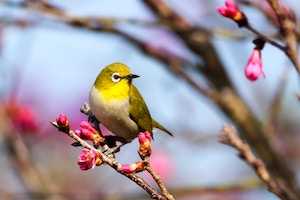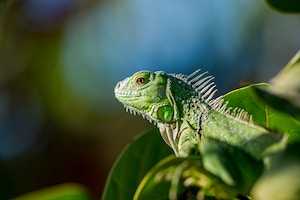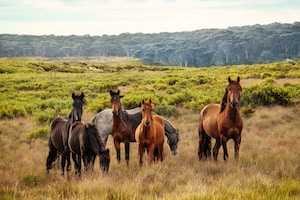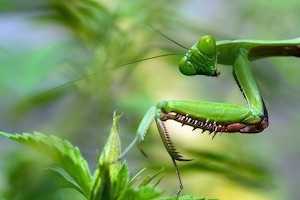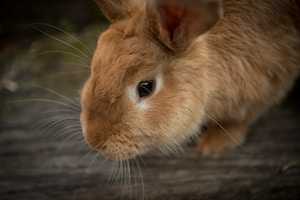Home > Before Landing > Bringing your cat, dog or other pets to Canada

Having a pet and can't see yourself living without it? Well, coming to Canada does not necessarily means separating from your beloved animal friend. No need to worry, with some paperwork and some time, it's quite easy.
Animal import is supervised by the Canadian Food Inspection Agency (CFIA). Some pets, however, do not require import permits, as you will see below. Apart from the Canadian authorities, there are some other issues will you need to take care of:
Animal import is supervised by the Canadian Food Inspection Agency (CFIA). Some pets, however, do not require import permits, as you will see below. Apart from the Canadian authorities, there are some other issues will you need to take care of:
- Call or e-mail the airline company you are flying with and ask them about what you need to do in order to take your pet on the flight. Policies and rules depend on each airline.
- Contact your country's governing body in charge of pet exports. Make sure you do not need further paperwork or action to be taken in addition to the Canadian requirements.
- You should ensure your pet has enough space to stand, turn around, and lie down in the carrier in which they will travel. The carrier should have a water container for your pet to hydrate. You should check the guidelines set forth by the International Air Transport Association.
- Personal pet cats and dogs do not need to be microchipped or tattooed to be allowed entry to Canada.
- Make sure to bring food with you on long trips. You need to note that if you want to enter Canada with pet food, it must be produced in the United States and be a closed commercial bag.
Cats
Cats are all required to be subjected to a visual inspection from the Canada Border Services Agency to ensure the rabies vaccination is current and that there is no visible sign of illness. Immigration agents may contact the Canadian Food Inspection Agency to carry out additional inspections, which will come at an additional fee of $30 per cat, and $5 per additional pet (plus taxes).
Cats are allowed entry in Canada only if you provide a rabies certification, meaning either:
Cats under three months old do not need the rabies vaccination. You need to provide proof of your cat's age if requested.
Cats are allowed entry in Canada only if you provide a rabies certification, meaning either:
- a rabies vaccination certificate; OR
- a veterinary certificate asserting that the cat is from a rabies-free country.
Cats under three months old do not need the rabies vaccination. You need to provide proof of your cat's age if requested.
Rabies vaccination certificate requirements
The rabies vaccination certificate must:
- be written in English or French;
- be issued and signed by a licensed veterinarian;
- identify the animal (as in breed, colour, and weight);
- state that the animal is vaccinated against rabies;
- indicate the date of vaccination;
- indicate the trade name and the serial number of the licensed vaccine; and
- specify the duration of immunity (otherwise, it will be considered valid for one year from the date of vaccination).
Veterinary certificate requirements
If your cat is from a rabies-free country, the veterinary certificate must:
- be written in English or French,
- be issued and signed by a licensed veterinarian,
- identify the animal (as in breed, colour, and weight),
- state that the animal has been in the exporting country since birth or for at least six (6) months immediately preceding shipment to Canada, and
- be accompanied by documentation from a competent government authority, stating that rabies has not occurred in the country of origin for at least six (6) months immediately preceding the animal's shipment to Canada.
- a letter issued on the competent government authority's letterhead, which must be dated, stamped and signed by an official of the competent government authority in the country of origin, or
- a letter by the licensed veterinarian who issued the certificate, which must be endorsed by the competent government authority.
Dogs
Dogs are all required to be subjected to a visual inspection from the Canada Border Services Agency to ensure the rabies vaccination is current and that there is no visible sign of illness. Immigration agents may contact the Canadian Food Inspection Agency to carry out additional inspections, which will come at an additional fee of $30 per dog, and $5 per additional pet (plus taxes).
Dogs may enter Canada only if they are accompanied by a rabies vaccination certificate.
Dogs under three months old do not need the rabies vaccination. You need to provide proof of your dog's age if requested.
Dogs may enter Canada only if they are accompanied by a rabies vaccination certificate.
Dogs under three months old do not need the rabies vaccination. You need to provide proof of your dog's age if requested.
Rabies vaccination certificate requirements
The rabies vaccination certificate must:
- be written in English or French;
- be issued and signed by a licensed veterinarian;
- identify the animal (as in breed, colour, and weight);
- state that the animal is vaccinated against rabies;
- indicate the date of vaccination;
- indicate the trade name and the serial number of the licensed vaccine; and
- specify the duration of immunity (otherwise, it will be considered valid for one year from the date of vaccination).
Birds
Pet birds require an import permit to be requested online through My CFAI or faxed or mailed to CFIA, Centre of Administration, and must accompany the birds to Canada. There are some conditions to be met for the pet bird to be allowed entry, most importantly that the bird (i) is healthy when entering Canada, (ii) is yours and you do not intend to sell it, (iii) was not in contact with other birds during the 90 days before the date of entry to Canada.
Pet birds from certain countries in which highly pathogenic avian influenza is considered endemic, are prohibited from being imported to Canada. Such countries are Bangladesh, China, Egypt, India, Indonesia, and Vietnam. This list may be updated, check this page for more information.
Pet birds from certain countries in which highly pathogenic avian influenza is considered endemic, are prohibited from being imported to Canada. Such countries are Bangladesh, China, Egypt, India, Indonesia, and Vietnam. This list may be updated, check this page for more information.
Amphibians and Reptiles
Amphibians (such as salamanders, frogs, toads, newts) and reptiles (such as snakes, crocodiles, caiman, iguanas, excluding turtles and tortoises) are not regulated. There are no border inspections and you can bring your reptile or amphibian friends from any country, for any use, to any destination in Canada.
However, an import permit is required for turtles and tortoises from all countries, and is only delivered to zoos and research laboratories. Thus, unfortunately, you will have to leave your pet behind.
However, an import permit is required for turtles and tortoises from all countries, and is only delivered to zoos and research laboratories. Thus, unfortunately, you will have to leave your pet behind.
Ferrets
1. If you are importing your ferret from the United States, you need to contact provincial authorities. You will be asked to provide specific documentation to be authorized to keep the ferret as a pet. You will not need an import permit if you present a rabies vaccination certificate stating that the ferret has been vaccinated in the last year before arrival in Canada.
2. If you are importing your ferret from a country other than the United States, you need to consult the Automated Import Reference System (AIRS) or contact your destination province's CFIA Animal Health Office. You will most certainly need to apply for an import permit.
Unfortunately, if you own a raccoon, fox, or skunk pets, no import permit will be issued for these kinds of ferrets.
2. If you are importing your ferret from a country other than the United States, you need to consult the Automated Import Reference System (AIRS) or contact your destination province's CFIA Animal Health Office. You will most certainly need to apply for an import permit.
Unfortunately, if you own a raccoon, fox, or skunk pets, no import permit will be issued for these kinds of ferrets.
Horses
1. If you are importing a horse from the United States, you will have to provide an Export Certificate issued by the USDA (Certificate VS 17-140 or VS 17-145).
2. If you are importing a horse from a country other than the United States, you need to consult the Automated Import Reference System for more information.
2. If you are importing a horse from a country other than the United States, you need to consult the Automated Import Reference System for more information.
Insects and Spiders
You need to contact the Canadian Food Inspection Agency, which issues import permits in accordance with the Plant Protection Act and Regulations.
Rabbits
1. If you are importing a rabbit from the United States, you will not need any import permit or health certificate.
2. If you are importing a rabbit from a country other than the United States, you will need to submit, at least 30 days before arrival, an Application for Permit to Import to the CFIA local office in the province of destination. You will also need an originally signed declaration (i) that the rabbit is your pet and (ii) that you are the one accompanying the rabbit during the trip to Canada. Your rabbit will also need to be quarantined.
2. If you are importing a rabbit from a country other than the United States, you will need to submit, at least 30 days before arrival, an Application for Permit to Import to the CFIA local office in the province of destination. You will also need an originally signed declaration (i) that the rabbit is your pet and (ii) that you are the one accompanying the rabbit during the trip to Canada. Your rabbit will also need to be quarantined.
Rodents
You can bring your rodents (such as gerbils, hamsters, guinea pigs, mice and rats) in Canada without any documents (import permit or health certificate).
However, there are restrictions if you want to bring the following rodents:
However, there are restrictions if you want to bring the following rodents:
- prairie dogs, gambian pouch rats, or squirrels from most countries, or
- any rodent from Africa.
What's next?




